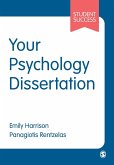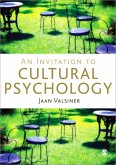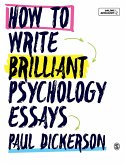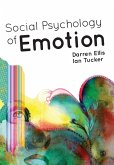`Do read this book - it will refresh you if you have not come across critical psychology before. If you are already "critical", this is an excellent, up-to-date overview of the area' - THE (Times Higher Education)
'An excellent book in all respects - compulsory reading for scholars interested in a socio-political contextual analysis of complex human behaviour' - Professor David F Marks, City University, London
'The arrival of a Second Edition of this classic is an exciting event. The editors have assembled a world class array of authors to bring students to the forefront of critical scholarship today. Adding to the work's lustre are fresh new chapters on critical social issues, along with a set of new pedagogical aids. Bravo!' - Kenneth J. Gergen, Senior Research Professor, Swarthmore College
The Second Edition of Critical Psychology extends the original's comprehensive and accessible critique of mainstream psychology. Fully revised, reconfigured and expanded, the Second Edition explores critical psychology's continued growth and diversification, offering practical advice, and noting significant theoretical and political dilemmas confronting critical psychologists today.
While other texts focus on narrower specialties within critical psychology or on specific theoretical or methodological perspectives, Critical Psychology retains its focus on critical psychology as a whole.
Key features of the new edition include:
- each chapter now also includes a summary of main points, a glossary of important terms, suggested readings and Internet sites, and questions for discussion
- the book's contributors - most of them new - have thoroughly updated the original chapters and provide multiple perspectives on critical psychology's core concerns
- reflecting recent developments, Parts Three and Four are completely new to this edition. Part Three provides in-depth coverage of critical psychology's relevance to social justice, focusing on the issues of race, class, gender, disability, colonization/globalization, human rights/social justice in post-conflict settings, and oppression/empowerment in mental health systems. Part Four examines critical psychology practice, from theory, methodology and therapy to community organizing and the politics of resistance.
'An excellent book in all respects - compulsory reading for scholars interested in a socio-political contextual analysis of complex human behaviour' - Professor David F Marks, City University, London
'The arrival of a Second Edition of this classic is an exciting event. The editors have assembled a world class array of authors to bring students to the forefront of critical scholarship today. Adding to the work's lustre are fresh new chapters on critical social issues, along with a set of new pedagogical aids. Bravo!' - Kenneth J. Gergen, Senior Research Professor, Swarthmore College
The Second Edition of Critical Psychology extends the original's comprehensive and accessible critique of mainstream psychology. Fully revised, reconfigured and expanded, the Second Edition explores critical psychology's continued growth and diversification, offering practical advice, and noting significant theoretical and political dilemmas confronting critical psychologists today.
While other texts focus on narrower specialties within critical psychology or on specific theoretical or methodological perspectives, Critical Psychology retains its focus on critical psychology as a whole.
Key features of the new edition include:
- each chapter now also includes a summary of main points, a glossary of important terms, suggested readings and Internet sites, and questions for discussion
- the book's contributors - most of them new - have thoroughly updated the original chapters and provide multiple perspectives on critical psychology's core concerns
- reflecting recent developments, Parts Three and Four are completely new to this edition. Part Three provides in-depth coverage of critical psychology's relevance to social justice, focusing on the issues of race, class, gender, disability, colonization/globalization, human rights/social justice in post-conflict settings, and oppression/empowerment in mental health systems. Part Four examines critical psychology practice, from theory, methodology and therapy to community organizing and the politics of resistance.









